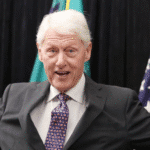The U.S. Department of Health and Human Services (HHS) has decided to cancel $500 million in funding for mRNA vaccines geared toward preventing breathing viruses, together with the flu and Covid-19. This choice impacts 22 essential vaccine improvement projects led by pharmaceutical giants like Pfizer and Moderna. The move, driven by way of Health Secretary Robert F. Kennedy Jr., is based on his stance that mRNA vaccines pose more risks than advantages.
Kennedy, regarded for his vaccine skepticism, introduced the funding shift, redirecting the money to initiatives focusing on “safer” vaccine structures. His assertion came amid developing controversy over his lengthy grievance regarding vaccine protection and efficacy. Despite the development made in the usage of mRNA vaccines to fight COVID-19, which significantly slowed the pandemic, Kennedy’s choice has raised issues among many public health specialists.
Why Did Kennedy Cancel the Funding for mRNA Vaccines?|
Kennedy’s move to cancel the investment for mRNA vaccines stems from his perception that the era has limitations. According to him, the data indicate that these vaccines do not offer adequate safety against upper respiratory infections like COVID-19 and the flu. Kennedy argues that mRNA vaccines can encourage mutations in viruses, prolonging pandemics as the virus adapts to evade the safety offered via the vaccine.
He similarly claims that the HHS will now focus on “broader vaccine systems” that stay powerful as viruses mutate. This shift in method, he says, will provide a certain higher protection in the long term. Here is the link to our article on Vaccine Fraud Charges.
How Do Experts Respond to Kennedy’s Decision?
Many health professionals have strongly criticized Kennedy’s stance on mRNA vaccines. Dr. Paul Offit, a main vaccine expert, has publicly defended the protection and efficacy of mRNA vaccines, highlighting their essential function in stopping extreme ailments. Dr. Offit, director of the Vaccine Education Center at Children’s Hospital of Philadelphia, emphasized that viruses, just like the flu, mutate regardless of whether vaccines are used, contradicting Kennedy’s claims.
Dr. Offit also mentioned that mRNA vaccines have been examined extensively earlier than being accepted, showing extensive ranges of safety. He warned that Kennedy’s choice to cancel investment could place the U.S. at a disadvantage in responding to destiny pandemics, as mRNA vaccines provide a quicker development cycle as compared to traditional vaccine platforms.
What Does This Mean for Future Vaccine Development?
The cancellation of $500 million in funding for mRNA vaccines is a sizeable move in reshaping how the U.S. Procedures vaccine development. The Biomedical Advanced Research and Development Authority (BARDA), which oversees these initiatives, will now focus on other vaccine platforms with stronger protection information and greater transparent medical information.
This exchange raises essential questions about the destiny of mRNA vaccines in the global fight against pandemics. While the mRNA vaccines from Pfizer and Moderna have proven important in controlling COVID-19, the broader effect of Kennedy’s decision should shift vaccine research toward different methods, probably slowing progress on mRNA-based solutions. Here is the link to our article on Vaccine Advisers Shake-Up.
How Does This Affect the U.S. Approach to Pandemics?
Kennedy’s cancellation of the mRNA vaccines investment represents a fundamental shift in the U.S. Strategy for destiny pandemics. By reallocating finances far away from mRNA vaccines, the U.S. government can limit the tools to be had to cope with the next international health disaster. MRNA vaccines were instrumental in fast combating the COVID-19 pandemic, and their fast development capabilities are seen as critical for destiny outbreaks.
With Kennedy’s arguable adjustments to vaccine coverage, the U.S. should locate itself in an extra susceptible role, missing the quick-reaction capabilities that mRNA vaccines provide. The choice additionally increases worries about the broader impact on international vaccine development and the destiny of public health.
Final Thoughts on the mRNA Vaccines Funding Cut
The cancellation of $500 million in funding for mRNA vaccines marks a pivotal moment in vaccine development coverage. While Kennedy’s moves reflect his skepticism about mRNA vaccines, specialists keep protecting their safety and capability. The selection to shift focus in the direction of opportunity vaccine structures raises questions about the future effectiveness of U.S. Pandemic responses and the evolution of vaccine generation. As this debate unfolds, it is important to carefully reveal the effects of this policy shift and its long-term impact on public health.








